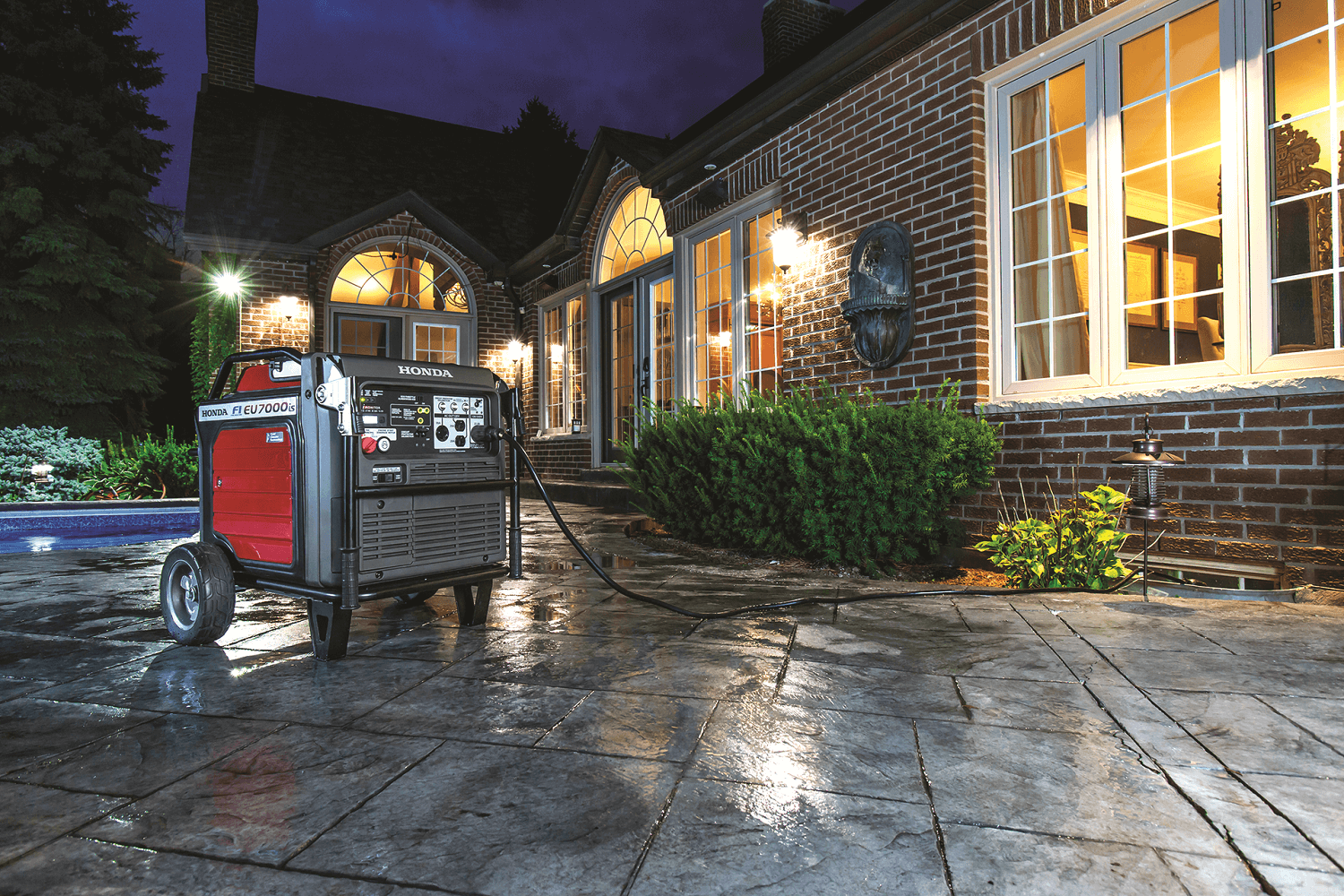
Generating Peace of Mind
When thinking of a generator, most would think of an appliance that would be utilized during a power outage. This is certainly a popular use for a generator, but did you know that its uses extend far beyond this?
Generators can provide an additional source of electricity to homes, amongst many other establishments. It’s a beneficial piece of equipment to own and has provided power to the world for over one hundred years.
In this article, we will review the features and functional benefits of a generator, how it is used, along with the reasons why you should invest in one this winter.
Read More: Do You Need A Generator?
What is a Generator?
A generator produces useable energy. It converts mechanical energy into electrical energy. It supplies electricity during a power outage and prevents discontinuity of daily activities or business operations. A generator does not actually create electrical energy. It uses mechanical energy supplied to it, forcing the movement of electric charges which are present in the wire of its windings, through an external electric circuit.
How Does it Work?
Coils of electric conductors, normally copper wire, are tightly wound onto a metal core. They are mounted to turn around inside an exhibit of large magnets. An electric conductor then moves through a magnetic field, interacting with electrons in the conductor, inducing a flow of electrical current within it.
Why You Should Invest in One This Winter
Having heat in the winter is essential for both your safety and comfort. Winter is unpredictable. Storms can cause power outages which can put both you and your family at risk. If your source of heat is affected by a power outage or a breakdown, your only option, without a generator, would be to rely on and wait for a technician to come and repair it.
A generator will not only provide you with the power needed to heat your home, it can also provide the electricity needed to run essential appliances, keep sump pumps running and provide you with lighting.
Types of Generators
There are several different types of generators, each having their own benefits as well as ideal usage scenarios. Your local professional can assist you with finding the best generator, based on your personal needs. Let’s dig deeper into the different options.
Portable
A portable generator is the smallest of the group of available options. They are often used recreationally for powering RV’s or for camping trips. Portable residential generators are used for homes in case of emergencies and can provide an additional source of power when needed.
Standby
A standby generator is a large generator that is typically attached to a business or residential building. It is most often used as backup power and is designed to automatically provide power when electricity fails.
Inverter
An inverter generator is a smaller, lighter and quieter generator than conventional models. It provides power which is as clean as the power you get from the outlets in your home.
Propane
A propane generator offers a long shelf life, clean-burning, home delivery of propane for larger tanks and offers a quieter engine than gasoline. Propane generators are ideal for larger generators needing a minimum of 1000 gallon tank.
What to Consider When Shopping for a Generator
Size
There are many factors to consider when choosing the appropriate size, so ask a professional to assist you in determining your best option. You will need to consider emergency use during power outages, standby power, occasional use around your home, use on the job or remotely, camping, RV use or all of the above.
Fuel Options
There are several different fuel options used for generators. Each fuel source has its benefits and downfalls. Diesel, for example, is more efficient and longer-lasting, but much more expensive than gasoline. Your fuel options are:
- Gasoline
- Propane
- Natural Gas
- Diesel
- Batteries
Fuel Tank
Fuel tank capacity must first be determined by how much fuel you will require and what you will be using the generator for. In the case of power outages that are infrequent, a smaller storage tank would most likely suffice. Large storage tanks are required when power outages are frequent and last for longer periods of time.
Wattage Capacity
Starting wattage, which is also known as “surge wattage” refers to the wattage an appliance needs at start-up. Starting wattage is normally 2-3 times higher than its “running wattage”, or, how many watts an appliance needs to run consistently. You can add the wattage of each item you wish to power as a guide to what size generator you need.
Usage
As a general guide, a generator provides backup power for your home, standby power for businesses, temporary power remotely, a permanent additional source of power for farms etc…and can help maintain power during an outage, avoiding interruption. A generator is also very useful for outdoor events, camping, travelling and parties.
Noise Level
Generators operate on different decibels, depending on the option you select. Your local professional can assist you with tips and tricks to reduce noise levels, as well as offer accessories to reduce sound.
Generator Safety Tips
The most essential safety requirement is ensuring that your generator is run outdoors, in a properly ventilated area. Generators can produce toxic and deadly carbon monoxide. They also should never be plugged in to a wall. There are many safety precautions to take when operating generators. Always be sure to read safety warnings for the specific unit in which you purchase.
A Wise Investment
Generators have a long list of highly beneficial uses and can provide many functions beyond backup power in case of emergencies. They can provide an added level of insurance to your daily routine or business operations, ensuring an uninterrupted power supply. Discuss your options with your local professional regarding the peace of mind a generator can provide you with.